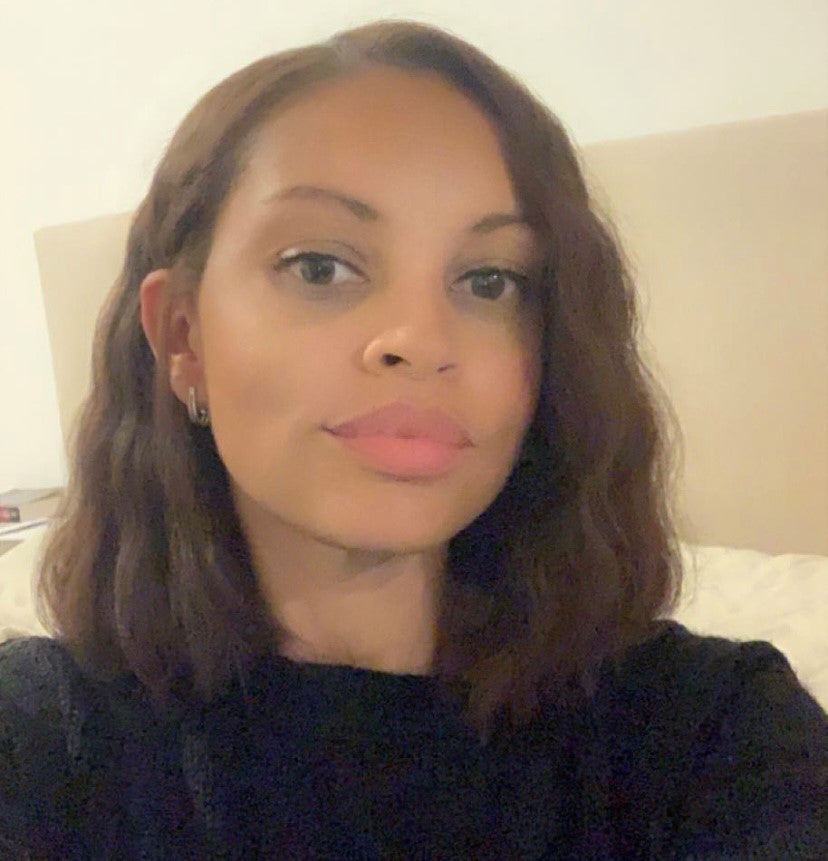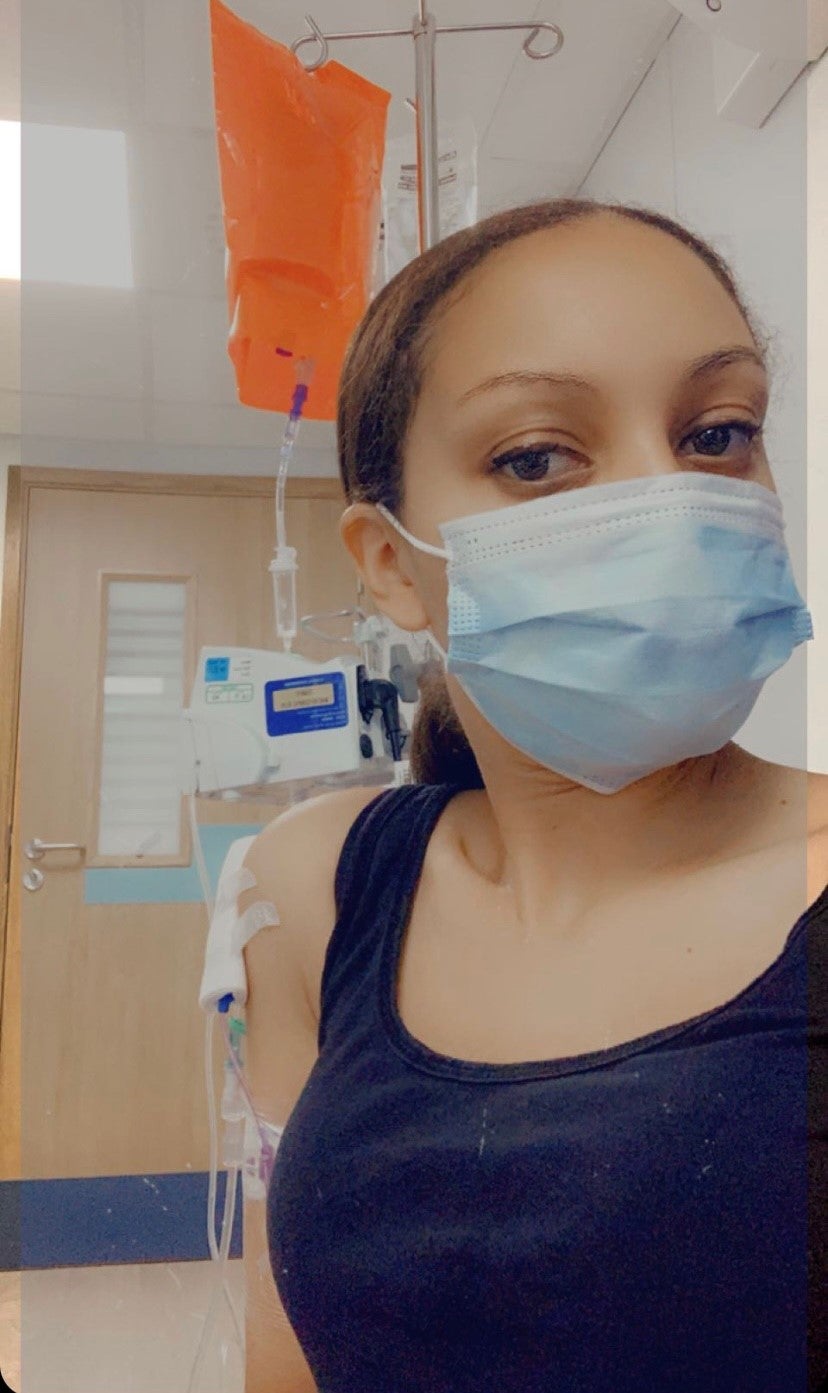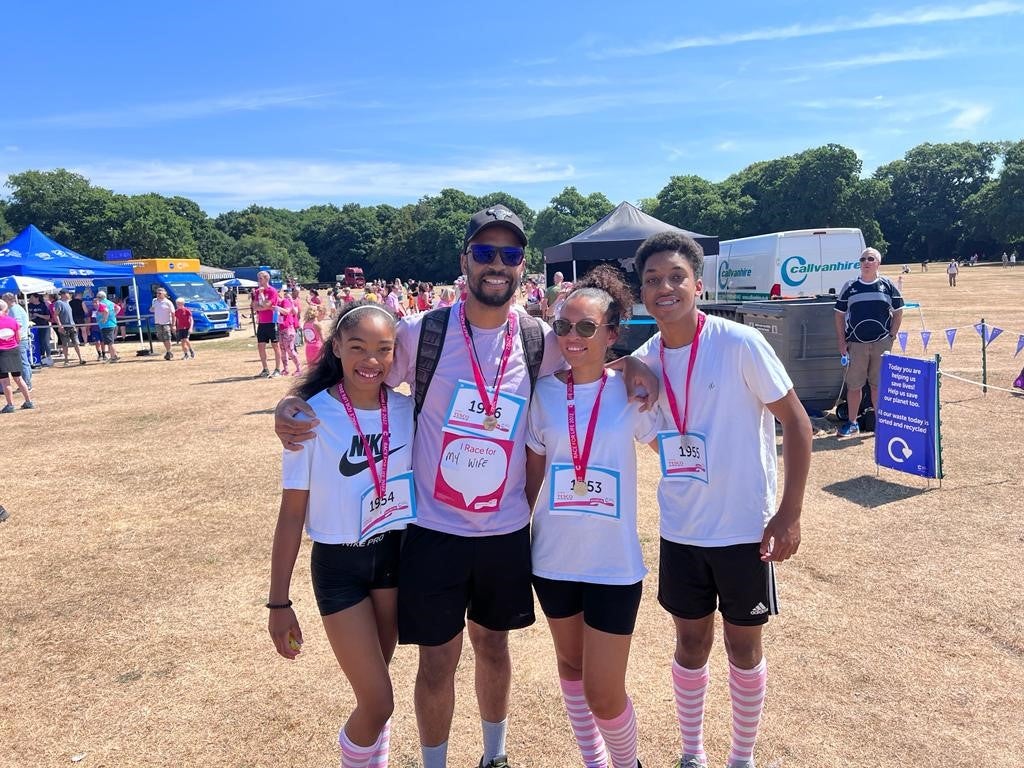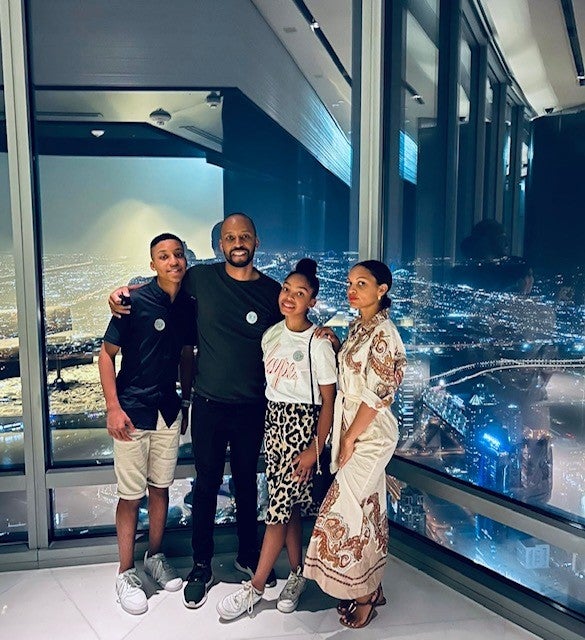Woman diagnosed with cervical cancer says doctors dismissed four telltale symptoms
Crystal Manuel, who lives in Chandler’s Ford in Hampshire, was diagnosed with cervical cancer at the age of 37
A finance manager who lost her mother to uterus cancer in her mid-20s and was later diagnosed with cervical cancer herself has said she knew she had to be “strong for the family” as she feared her children were “too young not to have a mother”.
Crystal Manuel, who lives in Chandler’s Ford, Hampshire, lost her mother, Dolores, to uterus cancer when she was 26, and she was diagnosed with cervical cancer at the age of 37 after experiencing abnormal vaginal bleeding for approximately one year.
The mother of two, now 39, explained that she was experiencing heavier and more painful periods, lower back pain, “shooting pain down (her) legs”, and bleeding after sex, but despite several GP visits, “they didn’t pick up anything” and her symptoms continued.
After pushing for a diagnosis, approximately one year later Crystal was diagnosed with adenocarcinoma cervical cancer, which she said was “very scary” – particularly as her mother had died three months after being diagnosed with uterus cancer.
Now, as a cancer survivor, Crystal wants to stress the importance of “(listening) to your body” and getting checked if “something (isn’t) right”.
“(My mum) was 49 and she experienced the bleeding and doctors just thought she had fibroids, so she was going in for a hysterectomy and when she went in for her assessment before the operation, that’s when they picked up that it wasn’t just fibroids – it was cancer.
“Unfortunately, it was late; she was diagnosed in November and she had passed away in February the next year, so three months later.
“It was just caught too late.”
She added: “It was very scary (when I was diagnosed) because, with her, it was just three months and she was gone, and she always said to us, ‘If you feel any ache and pain’ – because she probably also ignored it for quite a while – ‘just go and get checked’.”
Cervical cancer is a cancer that is found anywhere in the cervix – the opening between the vagina and the womb – and, according to the charity Jo’s Cervical Cancer Trust, it currently kills two women in the UK every day.
Symptoms include unusual vaginal bleeding, changes to vaginal discharge, pain during sex, or pain in your lower back.

A cervical screening, known as a smear test, checks the health of the cervix and is a test to help prevent cancer – and although Crystal’s results came back as negative, the bleeding persisted and she knew “something wasn’t right”.
Crystal said it was extremely difficult to book a GP appointment due to the coronavirus pandemic, but after pushing to be seen, she secured an appointment and was referred to Southampton General Hospital, where she had a cervical biopsy.
Weeks later, she received the devastating news that she had cervical cancer, and she then underwent an MRI and a CT scan.
Given Crystal’s mother had died three months after her diagnosis, Crystal said it was “really scary”.
“I was very scared… I lost my mum to uterus cancer, so it made it more scary,” she said.
“You’re more concerned as a mother; you’re anxious and (you) get stressed because you don’t know how bad it is and you’re expecting the worst.”

However, despite Crystal’s fears, she knew she had to be strong for her husband, Clive, 39, a regional manager for British Gas, and her two children, Camron, 15, and Chaia, 12, as she did not want to “worry (her) family”.
She continued: “I’ve got two children and a husband, so it was very scary, but obviously, you’ve got to be strong for the family.
“Whatever’s going to happen is going to happen, but when you’ve got children, you just think to yourself, they’re too young not to have a mother.”
Crystal explained that while she feared the worst at times, her diagnosis was “not a death sentence” and she “tried to carry on as normal”.
She feels her positive mindset was fundamental in helping her get through her treatment, which included a radical hysterectomy – a surgical procedure to remove the womb – five rounds of chemotherapy, five weeks of daily radiotherapy, followed by two weeks of brachytherapy.
Crystal said she recovered well after the hysterectomy and she did not lose her hair due to the type of chemotherapy she underwent, but she did experience some “horrible” side effects, including nausea, diarrhoea, fatigue, aching bones, and a loss of appetite, as well as going into menopause.
While she did her utmost to remain positive during treatment, Crystal explained that she did “feel down some days”.

She even remembers crying in front of one of the nurses, saying: “I can’t do this anymore”.
However, Crystal knew she had to “go through it”, and it is only now that she has started to process the impact of her diagnosis and treatment.
“When I look back now, I actually feel sorry for myself; I think, oh my goodness, I actually went through so much,” she said.
“But at the time, I think, because you’ve just got to go through it, it’s just like you’re in survival mode.
“You’re in pain and a lot is going on – my blood pressure dropped and I was faint and I was sick – but when I look back, it’s like it never happened.
“At the time, you know you’ve just got to put up with it, you’ve got no other option.”
Three months after Crystal’s treatment had finished, she received the “all clear” and she now has check-ups every few months.

While she felt a sense of “relief” and happiness at being in remission, and her physical health has since improved, Crystal explained that it has been difficult to process the last two years, adding: “Everything happened so fast… it’s surreal.
“You’re happy (to be cancer free), obviously, but you don’t feel super happy because I think you’re still processing it mentally – everything you’ve been through.”
Crystal explained that her diagnosis and treatment have “taught (her) a lot about life and what’s important in life”, adding: “In reality, we’re all not here forever, so for me now, I’m living life differently; I’m living life (to the fullest).”
Now Crystal wants to encourage other women to have their smear tests and to push for a diagnosis if they feel “something (isn’t) right”.
“Just listen to your body because, luckily for me, that’s how I detected it,” she said.
“I knew something wasn’t right… (but) I had to push to be seen.
“Advocate for yourself, (and) if you have any symptoms, or anything you feel is not right, with anything in your body, go and get checked.
“(My mum’s cancer) was caught too late, and she said, ‘Any ache or pain, just go and get checked’, and I agree.”
Jo’s Cervical Cancer Trust is launching its biggest ever campaign: #WeCan End Cervical Cancer, to work towards a day where cervical cancer is a thing of the past. You can find out more by visiting: www.jostrust.org.uk/ccpw



Bookmark popover
Removed from bookmarks